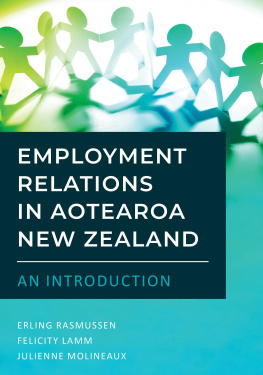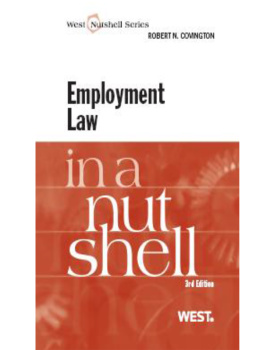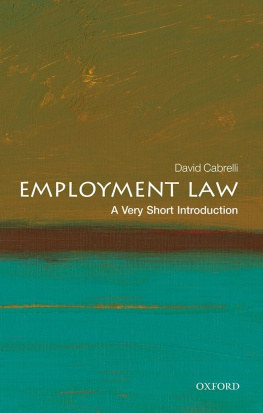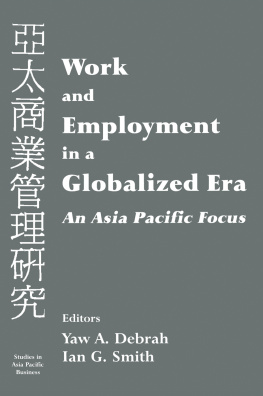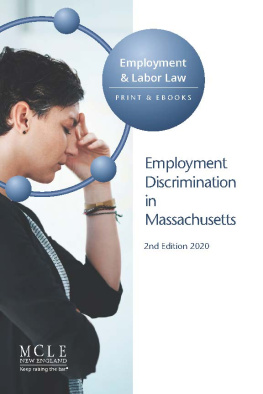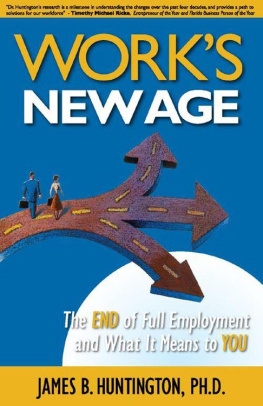The first Stirling Professions and Management Conference was held in August 1993. Over 100 participants were drawn from the UK, Europe, Australasia and the USA, and 75 papers were presented. In July 1994 the Fourth Internationalizing Entrepreneurship Education and Training Conference (IntEnt94) was held, followed in August 1995 by a second conference on the theme of Professions and Management, and in July 1996 by the conference on Ageism, Work and Employment from which this book draws most of its papers. These conferences also attracted numerous international participants.
Over 100 papers from or chapters stimulated by these conferences have now been published, in seven co-edited and edited books. The Professional-Managerial Class: Contemporary British Management in the Pursuer Mode, co-edited by Ian Glover and Michael Hughes, was published in 1996, as were Beyond Reason: The National Health Service and the Limits of Management, effectively a sector case study of the main themes discussed in the previous book and co-edited by John Leopold, Ian Glover and Michael Hughes, and, from the 1995 conference, New Relationships among the Organised Professions, edited by Robin Fincham. In 2000 Professions at Bay: Control and Encouragement of Ingenuity in British Management, co-edited by Ian Glover and Michael Hughes, took many of the arguments from the three previous books on professions and management further. In doing so it contained three chapters not given at the 1993 conference, ten from it which were updated by or with help from their authors, and extended introductory and concluding chapters. Further books in Ashgates Stirling Management Series include Educating Entrepreneurs in Modern Economies, co-edited by Peter Rosa, Michael G. Scott and Heinz Klandt, and Educating Entrepreneurs for Wealth Creation, co-edited by Michael G. Scott, Peter Rosa and Heinz Klandt, which were published in 1996, 1998, as were Enterprising Capital, by Simon Harris and Chris Bovaird, and Performance Review in Local Government by Rob Ball.
Ageism, Work and Employment, co-edited by Ian Glover and Mohamed Branine, contains twelve papers presented at the conference on that subject, five invited ones written subsequently, and substantial introductory and concluding chapters. A further three of the conference papers were published in a special issue, co-edited by Mohamed Branine and Ian Glover, of Personnel Review, on ageism, work and employment in July 1997, and another was published in the Human Resource Management Journal in 1998. The introductory chapter addresses various themes and contains a brief description of the contents of the remaining chapters, and draws a significant proportion of its content from a paper presented by Ian Glover to an Economic and Social Research Council seminar series on Age and Labour Markets in December 1997. The core arguments of this volume include the following: age discrimination affects people all ages, not just older ones; that ageism is a near-universal phenomenon, but some societies exhibit more constructive and thoughtful attitudes towards age and to relationships between the generations than others; that the terms ageing population and demographic time bomb are misleading because longer and on the whole healthier and wealthier lives are achievements to build upon and not problems to cope with; that employment, education, pension, health and welfare policies need to be co-ordinated better as well as developed in the light of economic and demographic change; that to expect employees and citizens of various ages to wait their turn, to fit in or to make way for others will increasingly be regarded as both economically constraining and ethically very dubious; and that while all ageism is bad, age discrimination should always be good.


